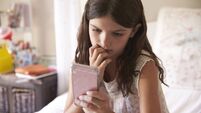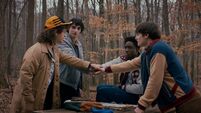Confronting porn: ‘What’s going on with our children? You gave them the phones’

Siobhán O’Higgins, sexologist at University of Galway, pictured at her home in the city. Picture: Ray Ryan
The average age for a child to receive a mobile phone is about nine years old.
From the moment the device is powered up, the internet is just a few taps away. Cat videos, memes, Minecraft tutorials, influencers, politics, forums, and of course: porn.














